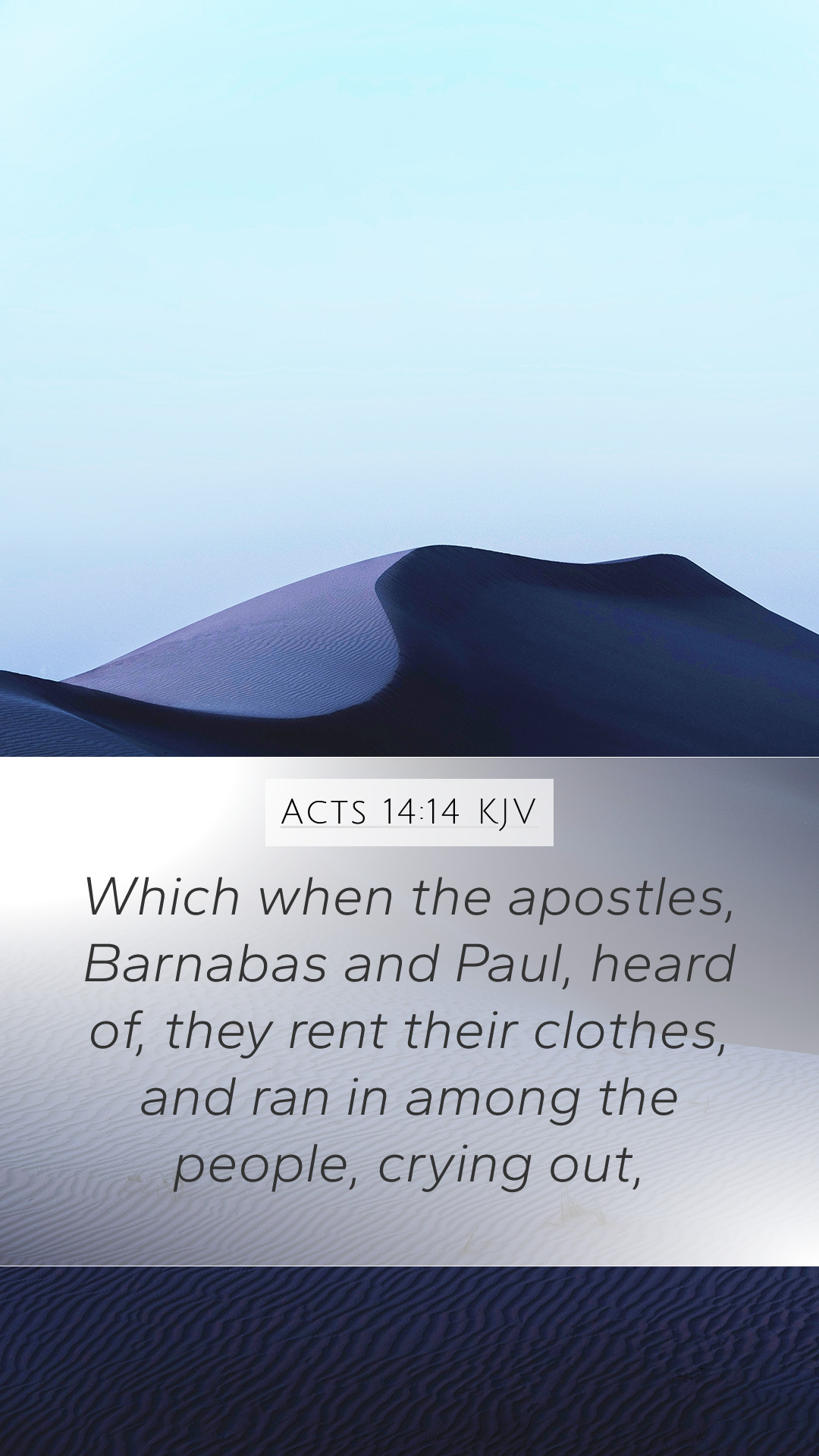Acts 14:14 - Bible Verse Meaning and Interpretation
Acts 14:14 states:
"But when the apostles Barnabas and Paul heard of it, they tore their garments and ran in among the people, crying out,"
This verse captures a pivotal moment during Paul and Barnabas’s ministry in Lystra, highlighting their response to a misunderstanding of their divine mission. Through a combination of insights from various public domain commentaries, we can glean a richer understanding of its meaning.
Contextual Background
The events of Acts 14 unfold shortly after Paul and Barnabas perform a miracle that leads the Lystrans to mistake them for gods—specifically, Hermes and Zeus. Their reaction signifies not only a local cultural misunderstanding but also an important theological stance regarding worship and the nature of humanity.
Commentary Insights
- Matthew Henry's Commentary:
Henry emphasizes the zealous nature of Paul and Barnabas in protecting the glory of God. Their act of tearing garments was a common Jewish expression of grief and horror, showing their deep distress over the people's idolatry. This act demonstrates their understanding that any form of worship directed toward them detracts from the true worship of God.
- Albert Barnes' Notes on the Bible:
Barnes highlights the immediacy of the apostles' response, indicating their awareness of the risks of idolatry. He underscores the significant role these actions play in emphasizing the apostles' desire to redirect the glory to God, as they call for repentance and point towards the living God.
- Adam Clarke's Commentary:
Clarke discusses the cultural implications of the incident, noting that such veneration by the local population illustrates the persistence of pagan practices. He also points out that the apostles' humanity is underscored, illustrating how God's work is carried out through human vessels, yet is entirely divine in nature.
Theological Implications
The tearing of garments by Paul and Barnabas serves not only as a cultural response but as a profound statement against idolatry and misdirected worship. They remind us of the importance of directing glory solely to God, reflecting the biblical principle found throughout scripture that emphasizes God's sovereignty.
Applications for Today
In understanding this verse, modern readers are invited to reflect on their own idols and the way in which they may unintentionally redirect worship. Here are a few applications:
- Reevaluation of Priorities: Consider what aspects of life take precedence over devotion to God.
- Community Instruction: Use this narrative during bible study groups to guide discussions about the nature of worship.
- Personal Reflection: Engage in self-examination on the nature of influence and witness in daily interactions.
Related Cross References
- Acts 10:25-26 - Peter responds similarly against idolatrous worship.
- 1 Corinthians 10:14 - Paul's exhortation to flee from idolatry.
- Romans 1:25 - A discussion on exchanging the truth of God for lies.
Conclusion
Acts 14:14 exemplifies the heartfelt and immediate response of Paul and Barnabas as they confront idolatry and redirect worship to the one true God. Through bible verse meanings and bible verse interpretations from trusted commentaries, we see a clear lesson in protecting the sanctity of worship and ensuring our lives direct honor to God alone. Such insights not only enhance our bible study insights but serve as pivotal teachings applicable to contemporary faith practice.


